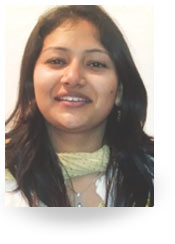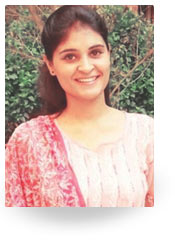Overview
MD in Physiology at Sharda University is a three-year postgraduate programme that covers concepts related to human anatomy and physiology. During the programme, students gain knowledge of standard human disease processes and other allied-health subjects. The programme aims to develop an understanding of the function and structure of the critical systems of the human body and to increase the fundamental knowledge in areas of molecular biology, biostatistics, and biochemistry among students.
The curriculum of the programme is designed in such a way that it trains students for a successful career in the medical sciences by exploring the interrelationships of tissues, cells, and sub-cellular components. The course also includes some laboratory components like dissection, anatomical studies using microscopy, and the study of physiological concepts through experimentation. Some of the topics covered in the curriculum are the study of basic biochemistry, cells and tissues, anatomical terminologies, muscular, skeletal, nervous, cardiovascular, endocrine, urinary, immune, digestive, respiratory, and reproductive systems.
Programme Educational Objectives (PEO)
A post graduate student having qualified the MD (Physiology) examination should be able to:
PEO1. Understand and deal with all aspects of general, systemic and applied Physiology.
PEO2. Teach effectively the basic physiological mechanisms of human body with reference to their implications in the pathogenesis of diseases (pathophysiology) affecting various organ systems and the physiological basis of their management to undergraduate medical, paramedical and all other basic science students.
PEO3. Understand general principles of medical education (use of appropriate teaching techniques and resources). 2
PEO4. Explain how the knowledge of physiology can be effectively used in a various clinical settings to solve diagnostic and therapeutic problems.
PEO5. Interpret and evaluate research publications critically.
PEO6. Use the library facilities (Literature database using computer, CD ROM, internet search and any other available newer techniques).
PEO7. Conduct relevant clinical/experimental research which may have significant bearing on human health and patient care.
PEO8. Have acquired skills in effectively communicating with the students and colleagues from various medical and paramedical fields.
PEO9. Acquire skills in conducting collaborative research in the field of physiology with allied sciences, clinical sciences and biomedical engineering.
PEO10. Interact with the allied departments and render services in advanced laboratory investigations.
PEO11. Serve as interface with society at large.
PEO12. Acquire administrative skills to set up concerned department / laboratories and initiate purchase procedure and procure necessary items for running such laboratories.
PEO13. Function as a member of a teaching or research team.
Program Outcomes (PO’s)![]()
- Cognitive Domain
PO1. Teach the basic physiological mechanisms of human body with reference to their implications in the pathogenesis of diseases (pathophysiology) and their management to undergraduate medical and paramedical students.
PO2. Conduct such clinical and experimental research, as would have a significant bearing on human health and patient care.
PO3. Interact with other departments by rendering services in advanced laboratory investigations and relevant expert opinion.
PO4. Participate actively in various workshops/seminars/journal clubs/demonstration in the allied departments, to acquire various skills for collaborative research.
PO5. Contribute to society by imparting physiological understanding of health problems.
PO6. Plan a research study and conduct basic and clinical systemic investigations.
B. Affective domain
A post graduate student having qualified the MD (Physiology) examination should be able to
PO7. Demonstrate self-awareness and personal development in routine conduct. (Self-awareness)
PO8. Communicate effectively with peers, students and teachers in various teaching-learning activities. (Communication)
PO9. Demonstrate
- Due respect in handling human subjects (Ethics & Professionalism)
- Humane touch while demonstrating living surface marking in subject/patient (Ethics & Professionalism)
PO10. Acquire capacity of not letting his/her personal beliefs, prejudices and limitations come in the way of duty.
PO11. Appreciate the issues of equity and social accountability while exposing students to early clinical exposure (Equity and social accountability)
C. Psychomotor Domain
The student should acquire competencies in the following tasks:
PO12. Hematology Experiments
PO13. Animal Experiments (All animal experiments must be compliant with Govt. of India Regulations, notified from time to time). Experiments in Amphibian /Dog/Cat should be conducted by computer assisted simulation models/ facilities. Other experiments should be performed as permissible by CPCSEA guidelines.
PO14. Mammalian Experiments
PO15. Clinical examinations
PO16. Writing a dissertation and a research paper
PO17. Making presentations at conferences
PO18. Appropriately using various teaching learning methods.








.jpeg)

.jpeg)



.jpeg)







